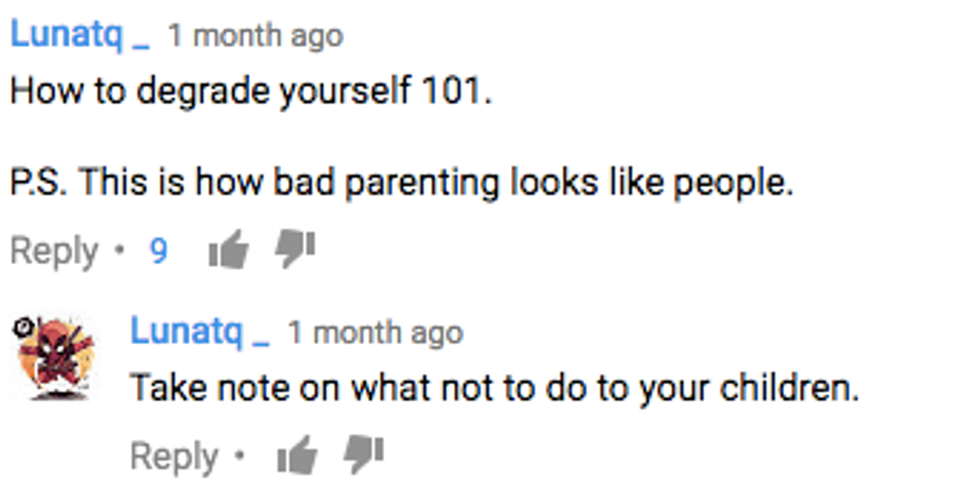This viral video featuring several young girls wearing princess costumes has become such a controversy; the girls utilizing their innocence to abruptly address issues of sexual assault and gender equality, all the while using persistent swearwords.
FCKH8 is a for-profit organization and company that is known for their activism and motivation towards social change, with a mission that states: “arming thousands of people with pro-LGBT equality, anti-racism and gender equality shirts that act as a ‘mini-billboards’ for change.”
To this day, comments are posted attacking the production of the video, the company, and the parents of the children within the campaign. The dependable reoccurrence of this video and heavily critical and persistent comments is consistent with a common consensus that the division of men and women is extremely real. This division goes beyond the taboo subject of basic equality, as such a large amount of people share this cognitive association of men and women as two separate entities, divided by values, strengths, and superiority.
Feminist or not, your opinions towards the acts and decisions of the producers and girls in the video is unrelated, as the crux of the video’s pivotal message goes much beyond the symbol of a rebelling princess. The comments in retaliation to Potty Mouth Princesses convey a clear message that a large percentage of the population would rather choose to attack the premise of children using swear-words, than address the much heavier and damaging subject of rape in females, and of the women in 2017 living in perpetual fear.
On that note, the ideals that have been systematically taught to women in our world for decades has encouraged them to embody a softness; to be elegant and untouched, while ironically, often promoting rape culture to an immense degree, consistent with the tedious tradition of treating women as objects. These subjects stand relevant and important, and confronting such issues does not negate the importance of discussing the acts of rape towards men, or any other injustices or acts of violence.
"The whole idea was using a bad word for a good cause to get people's attention," said director Luke Montgomery. "A lot of people are focusing on that we use the 'F' word in this video… The reason we did use the 'F' word is because we want people to focus on statistics like one out of five women will be raped or sexually assaulted in their lifetime, or the fact that women and men doing the exact same job, the woman gets paid 23 percent less than men. In 2014, that's what's shocking, not the 'F' word."
As time and time again, women have been perceived to a lesser degree than men, a generalization has formed within society. Society. For lack of a better word in describing an aggregation that can be targeted, I say society. I don’t look to generalize every male, female, and specimen that consumes each facet of the population- but in saying that, it is important to note that any society in itself, has the ability to slowly, while potentially unconsciously, become a symbol of the values and morals that the bulk of the population has adapted and displays. In no situation does a generalization of any kind prove to be constructive, but it is when statistics, factual evidence, and persistent treatment of women consistently illustrates women's inequality that a generalization comes about, and stays for quite a while. Generalizations and stigmas are so heavily feared by the general public that eventually, the war against their existence becomes greater than any effort to actually combat the initial issue that the generalization formulated from. Stigmas are created from one experience, and then another experience, and another, and eventually that same stigma becomes so heavy and weighted down that it becomes an extravagant and often drawn out generalization. While the generalization that all men rape is false, the stigma surrounding men’s historical horrific treatment of women stays factual. Men do rape, women do too. Without a doubt, the perpetual nature of rape in society should be addressed, as should many subjects.
In a way that does not work to minimize the movement that protects men’s rights against rape, there must be a common comprehension in which society agrees that while horrific things happen to each gender, the significant imbalance in the comparison of women rape cases to men's cases must be noted. Without this noting, women are often seen as desperate, aggressive, and dismissive of men’s issues- which is not the case. In a world where silence has been seen as a female’s greatest asset for many decades, these young girls are defying this ideal in the bravest fashion- and by ignoring the enormous negative implications surrounding this video, one can see the strength and importance of these children exuding a voice of women generations older than them, who have not done so, or been able to.

























